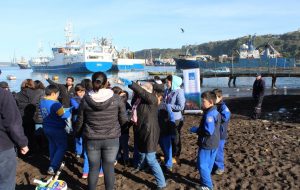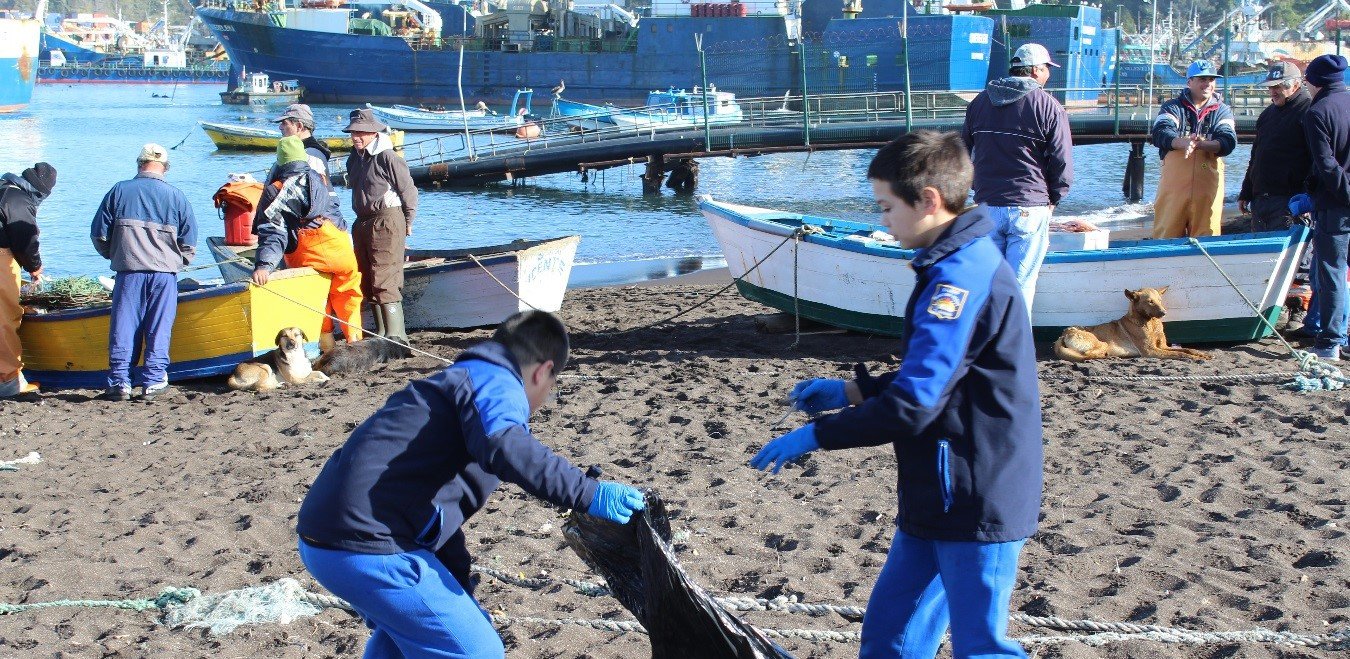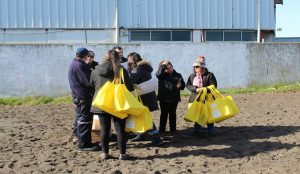700 kilograms of garbage were removed from caleta Lenga y Tumbes cove
October 31st, 2018About 500 kilograms of garbage were removed from Lenga cove beach and around 200 kilograms in Tumbes Cove, cleanups that were made possible thanks to schools and colleges students support from Hualpén and Talcahuano, as well as volunteers from public services and fishing, industrial and maritime companies workers.; all with the clear objective of collecting coastal edge abandoned waste .
On October 2nd and 12th , a scientific observers and technical staff from (IFOP) Fisheries Promotion Institute together with Chilean Navy (Harbor of San Vicente and Talcahuano), in the framework of the World Environment Day held the Beach Cleaning activity in Lenga and Tumbes coves.
This year, in addition to sand cleaning, Chilean Navy divers, together with shellfish and sports divers, carried out an underwater inspection (subtidal).
Ariel Pinto IFOP technical staff member corrector, narrated “equipped with bags, masks and gloves 400 attendees attended the activity, which is part of the” International Day of Beach Cleaning, shovels and buckets were used, to segregate garbage, separating by type of material. The classification resulted as follows; plastic caps, threads, cigar butts, metal sheets and corks, beverage cans and beers.
Then garbage was stored in bags and later removed in City councils garbage trucks . ”
Heraldo Alvarez IFOP scientific observer explained “about 500 kilograms of garbage were removed from Caleeta Lenga cove beach and around 200 kilograms in Caleta Tumbes, cleanups that were made possible thanks to schools and colleges students support from Hualpén and Talcahuano, as well as volunteers from public services and fishing, industrial and maritime companies workers.; all with the clear objective of collecting coastal edge abandoned waste

Katherine Pinto, IFOP’s corrective analyst added “this action is useful as way to raise awareness among citizens about damage produced by plastic on shore, the sea and in biodiversity.”
At the end Cristián Villouta, IFOP field coordinator “participants toured beaches collecting all kinds of waste to prevent them from reaching the sea and contaminating the coast. In this way it is expected to contribute by modifying habits and behaviors that produce these spaces contamination.
In their side, children specially praised the initiative which allows them to become aware of the importance of caring for the environment. “

